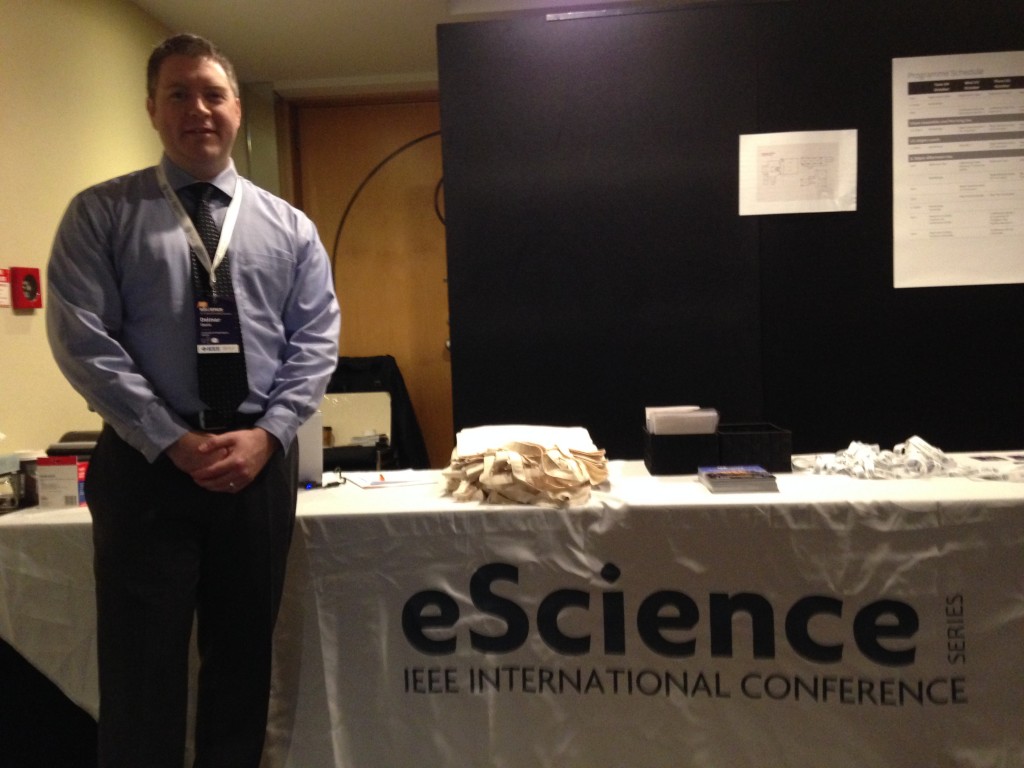Graduate student Delmar Davis presents a subset of his MS Thesis work on ProvMASS at the eScience conference.
I am Del Davis, a recent graduate of the MCSSE program at UWB. I have had the pleasure of participating in many projects for the Provenance and Traceability Research Group over the years. Among these projects, capturing provenance for multi-agent models has been the most challenging, as it required methods to relate shared data operations in a distributed memory within the context of high-performance computing. I had the privilege of sharing a subset of my thesis work, entitled Data Provenance for Multi-Agent Models, with fellow eScientists in Aukland, New Zealand.
The 2017 eScience conference revealed a wide range of computing challenges, from data curation in insect collections to activity boosting IOT solutions in community homes. Many discussions touched on an issue that stems from the growing divide between increase in processing power and the slower increase in network / memory bandwidth: how to stage and collect data most efficiently. Scheduling and related hardware configuration solutions were presented by representatives of national laboratories. Some of these discussions even mentioned interdependent scheduling between clusters in geographically disparate institutions. From a Karlsruhe Institute of Technology researcher, methods to compressing climatology data along deltas in the 4th dimension proved to be especially interesting. In the BigDig workshop, the scaling issue took on a mechanical form, addressing how best to digitize extremely large (hundreds of millions of samples) physical specimen collections. Whether regarding people, insects, or machines, all the categories of eScience issues proved to be quite interesting.
A socially active setting was provided for the conference. It included many break-out periods, a dinner event and a welcome social. In many cases, the presentations and keynotes were followed by very casual dialogue, my own included. Discussion flowed freely in and out of the conference rooms about every topic combination. I had several fascinating conversations with many friendly, interesting people. This experience exposed a variety of issues in computing that I was unaware of and gave me plenty to think about regarding my own research.
Note: This work is based in part upon work supported by the US National Science Foundation under Grant No. ACI 1350724 and the UW Bothell CSS
Graduate Research Fund.

